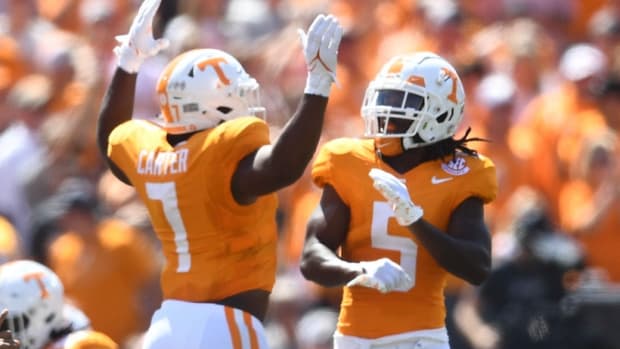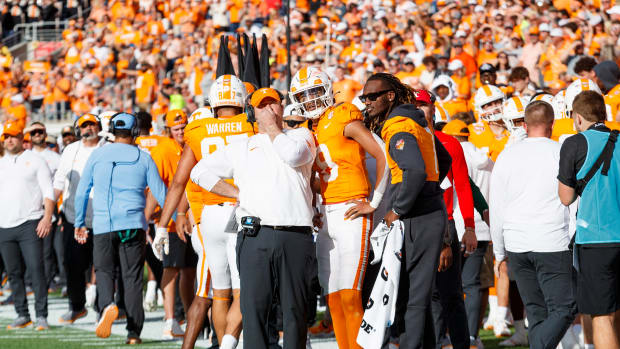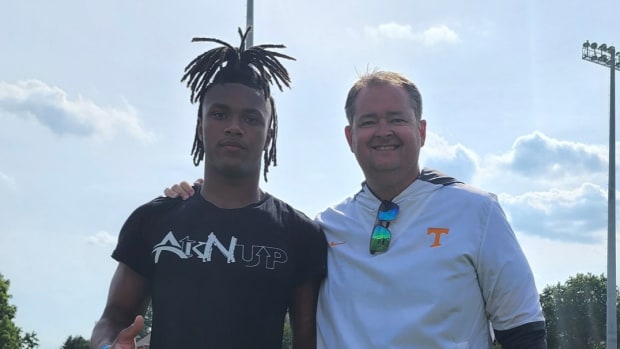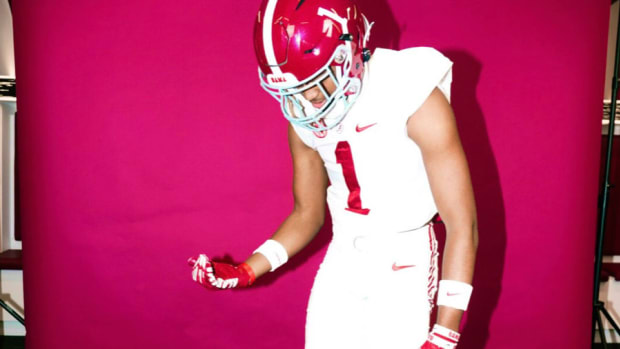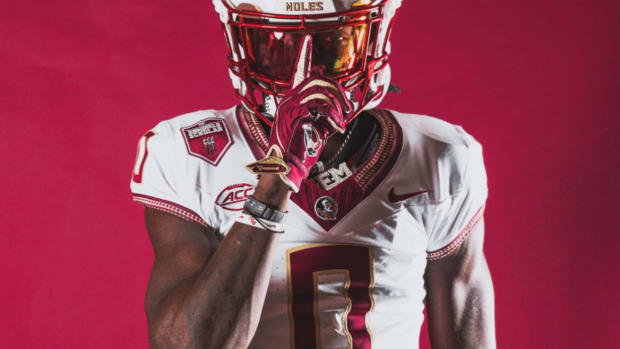NCAA Tables One-Time Transfer Rule, What This Means for Tennessee
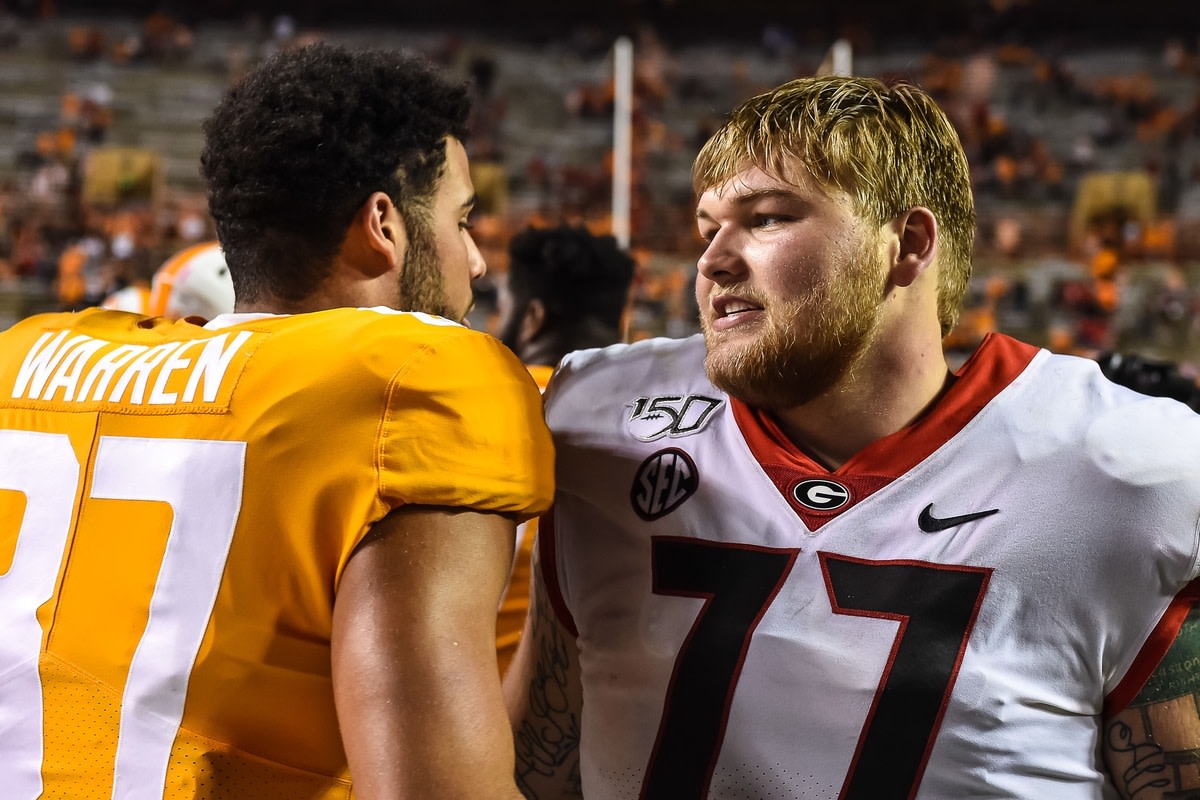
Yesterday, the NCAA voted to allow voluntary athletic workouts to return to campus as early as June 1st. This means we could see Tennessee players back in Knoxville in the next two weeks. However, the good news came some potentially bad news for Tennessee. During the session, the Division 1 Council tabled the one-time transfer waiver until the 2021-22 academic year. The news was first reported by Stadium's Brett McMurphy.
Sports Illustrated's Nick Selbe wrote, "In its release, the NCAA stated its intent to adopt legislation that creates "uniform, modernized rules governing eligibility after transfer for student-athletes in all sports." This legislation change would aim to achieve the same goal that the waiver proposal would, only through a lengthier process.
Current Division I rules prevent student-athletes playing baseball, men’s and women’s basketball, football and men’s ice hockey to immediately compete after their first transfer. While the one-time transfer waiver might have expedited the process of changing this, the NCAA is favoring a more thorough approach to adjusting its transfer rules.
“The transfer environment has long been an issue of much discussion in Division I. The Division I Council is committed to a uniform and equitable approach to transfer rules that considers student-athlete well-being and the opportunities available after transfer,” Council chair said M. Grace Calhoun, athletics director at Pennsylvania and Transfer Waiver Support Group chair. “We will not simply change the rule, but we will consider a comprehensive package designed to address the multiple complexities involved.”
So, what does this mean for Tennessee?
Well, let us start with Cade Mays, given he is already on the roster. Mays announced his transfer to Tennessee on January 8th of this year, and it sent shockwaves through the SEC community. The move towards a one-time transferred furthered the anticipation that Mays would be on the playing field this fall, but now with the tabled legislation, that is once again back in doubt.
The Mays family was prepared to fight for immediate eligibility, and they hired the right guy for the job, in attorney Tom Mars. Mars' history of handling high-profile cases is stellar, and the case with Mays will be no different.
After announcing his transfer, it came to light that Cade's father, Kevin, was suing the University of Georgia for an accident that resulted in the partial amputation of his pinkie finger.
According to Athens-Clarke County State Court records, Mays' mother and father sued the University of Georgia System Board of Regents, the Georgia Athletic Association, and others after Kevin's right pinkie finger was amputated in an accident involving a folding chair at a team recruiting event.
The complaint added that his finger could not be reattached and he underwent skin-graft surgery on his hand. He continues to "suffer terrible pain and decreased use of his right hand," per the complaint.
Mays certainly has a chance to gain eligibility this fall, as he moved closer to his family, there is the appearance of hardship, and he had no off-field issues during his time at Georgia.
Mays would be slotted in as a Day 1 starter should he get immediate eligibility, but should he not, the position would likely become a position battle between Jerome Carvin and Riley Locklear.
Mays' eligibility would give Tennessee its most complete offensive line in over a decade. The next big question is, when will Tennessee get an answer on his status? Only time will tell.
The other player that this effects in regards to Tennessee is JT Daniels. The coveted USC QB was expected to make a quick decision if the one-time transfer rule was passed, and it was fully expected for him to leave the West coast. Now that is probably not the case.
Daniels is considered a transcendent talent who could be a one and done guy to the NFL. He has all of the natural talents in the world, but after reclassifying to play earlier at USC, he did not catch many breaks. He played behind a porous offensive line during his freshman campaign and suffered an unfortunate injury in 2019 that sidelined him for the campaign.
Daniels will have to go through the process mentioned above, and he will have to win a waiver if he plans on transferring and playing this fall. The uncertainty around the status of football in the PAC-12 this fall will also weigh into this situation, and likely is the reason the one-time transfer rule was tabled until later.
At this point, it would be shocking if Daniels left the West Coast without some concerning issue coming to light, as he would not likely meet the qualifications for a one-time waiver. If he still chooses too, it will be interesting to see if Tennessee gets involved with the crowded quarterback room at hand, Harrison Bailey being on campus, and coveted 2021 QB Kaidon Salter being committed.
For Tennessee, this news is most concerning with Mays, and it will remain interesting to see when a decision is reached.

